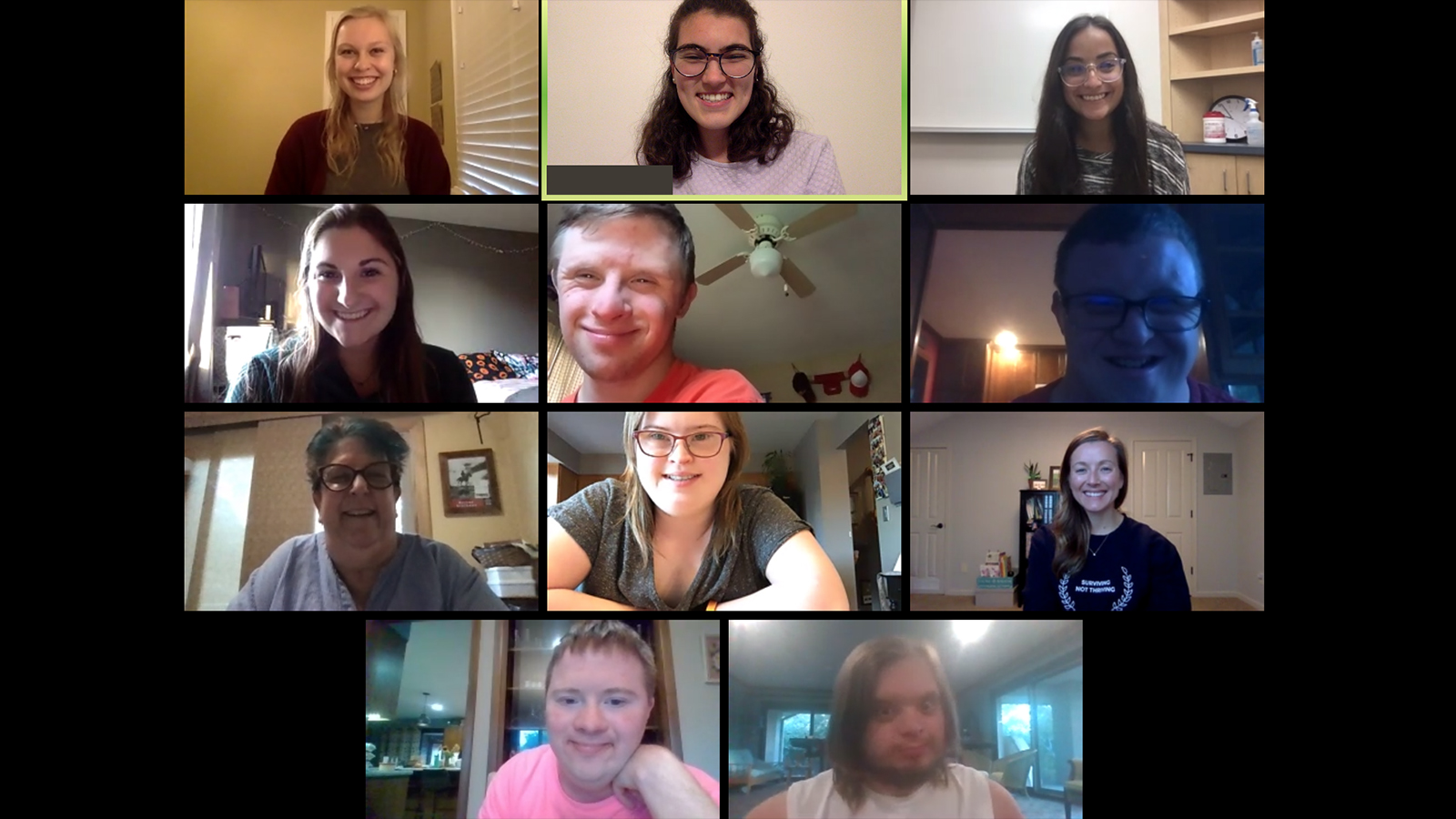
Barkley Clinic book club for young adults with Down syndrome goes virtual amid pandemic
16 Oct 2020 By Kelcey Buck
When the Barkley Speech Language and Hearing Clinic was approached in 2017 about hosting a book club for young adults with Down syndrome, Alicia Davis jumped at what she thought would be a “cool adventure” to lead the group.
Now, more than three years later, the book club is going strong and Davis is grateful for the lessons learned by both the young adult members, as well as herself and the graduate student clinicians who lead the weekly discussions.
“I think our students often underestimate the abilities of the young adults in this book club, and this allows us to see there are a lot of things that the young adults are doing and doing well,” said Davis, a lecturer in Special Education and Communication Disorders and a clinical supervisor at the Barkley Clinic. “They teach my students and me as much as we teach them, so that’s been a cool partnership.
“I love the fresh take that these young adults have on the world. I think we all get really caught up in the bleak parts of things that are happening in the world, and they come in with that glass-half-full philosophy, and I love it. It really puts my world in perspective.”
A partnership between the Barkley Clinic and the Down Syndrome Association for Families of Nebraska (DSAF), the book club is open to young adults with Down syndrome who are at least 16 or 17 years old. The group meets every Thursday evening, year-round, with the first three Thursday meetings typically held at the Barkley Memorial Center before meeting at a coffee shop in Lincoln on the fourth Thursday. With the ongoing COVID-19 pandemic, however, the book club is now enjoying its weekly discussions via Zoom.
“I was nervous when we were moving to the Zoom platform this summer,” Davis said. “But, they are such good citizens on Zoom. They wait for each other to talk, they participate, and they are on time. It’s great.”
The first semester of the book club in the fall of 2017 was spent mostly getting to know each other, learning about the members’ interests and how they would like the book club to run. The members were responsible for establishing rules for the book club and deciding what to read.
In that initial semester, the group read recipes. They read directions and played games. And they talked about how to have conversations with each other. Then they took a vote to decide whether to read a book the next semester.
“They make their own decisions about the book club – what we read, how much we read, what snacks we eat – and we let them learn what that’s like to make decisions,” Davis said.
Currently, the group is reading “The One and Only Ivan” by Katherine Applegate. Before that, there was “Wonder” by R.J. Palacio, “Marley & Me: Life and Love with the World’s Worst Dog” by John Grogan, and six books in the “A Series of Unfortunate Events” series by Lemony Snicket.
Ultimately, Davis hopes the book club helps the young adults in three main ways.
“There are three things we hope participants gain: 1) recognizing that reading can be a really appropriate recreational activity; 2) learning how to appropriately have a conversation with people about things that are related to something we’re talking about in book club; and 3) helping them broaden their friendship base.”
Anyone interested in joining the book club can contact Davis at alicia.davis@unl.edu or DSAF at director@dsafnebraska.org. Individuals do not have to be DSAF members to participate.
Special Education and Communication Disorders
College of Education and Human Sciences